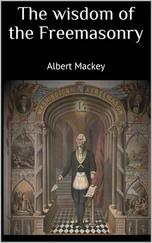“A sublime response!” cried Karamallah. “Thank you for providing me with it. Of course, I didn’t expect any less from you, Excellency.”
Karamallah’s wonder was not feigned; he was truly amazed by the persistence and extent of such an inept ideology; he’d never thought it could flourish in sun-drenched lands. So, the old idea dreamed up by illustrious thinkers from cold climes — according to which the world was complicated and absurd — had crossed oceans and borders to come lodge itself in the brain of this abominable crook on the banks of the Nile. This vileness, which consisted in denying the Edenic simplicity of the world, served the interests of the powerful because it justified all the hardships endured by the ignorant masses. Karamallah rebelled against this pernicious disinformation with all the might of his great love of life.
“Could His Excellency tell us about his personal success?” Ossama asked. “I must confess that, for me, there is something magical about it.”
“There is no magic at all,” Suleyman assured him. “It is the determination I bring to my work that lies at the heart of my success.”
“And what a success it is!” declared Karamallah. “Unfortunately it’s been spoiled by that horrid catastrophe. I am so sorry for you. Unless I’m very much mistaken, it was nothing but bad luck. Or is there some other explanation?”
“I am also extremely sorry, believe me. But nothing can be done to prevent natural disasters. They’re a curse that spares no one. And so I don’t complain.”
“Natural disasters?” asked Karamallah, surprised. “What do you mean?”
“May Allah keep you from ever finding yourself in such a situation. Who in the world could have expected an earthquake on such a quiet summer night? Well, the earth quaked, creating an unfathomable mystery around Nasr City. We will never know how or why I was made the victim of nature’s whim.”
“An earthquake? Where?” asked Nimr worriedly, taking off his glasses in order to perceive the event more clearly.
“Don’t be alarmed,” Karamallah advised. “We escaped this earthquake — it didn’t do us the honor of coming through our neighborhood. I find that it lacked tact in respect to us.”
Karamallah’s pleasant little speech seemed full of innuendo to Suleyman, like a clever refutation of the lovely tale he had just told.
“What? You didn’t know about it?” he asked, as if he were completely stunned by his companions’ amazing ignorance of such a terrifying bit of news. “True, Nasr City is far enough away that one doesn’t always know what goes on there. And then, the government asked the newspapers not to reveal the incident so the people wouldn’t find out about it. But I thought men of your education must have heard about the disaster in one of those cynical intellectual circles always on the lookout for scandal.”
“No,” said Karamallah. “As you can see, even people with our education were not aware of it. Yet you have warmed our hearts. My friends and I are happy to learn that the true cause of the building’s collapse was a natural disaster and had nothing to do with faulty construction materials. The martyrs sacrificed beneath the ruins have only cantankerous nature to blame.”
“On my honor, it’s the plain truth,” Suleyman assured them. “In fact it was confirmed by two experts I brought in from abroad to rule out any accusation of fraud. They examined every piece of rubble, analyzed the air around the site, and concluded that it had indeed been an earthquake. Those scientists cost enough for me to set great store by their conclusion.”
“I’ve noticed,” said Ossama, “that earthquakes always occur in the poorest regions of the world. One has to wonder if nature doesn’t despise the poor.”
“It only proves that nature behaves as basely toward the poor as men do,” said Karamallah. “But these frivolous ideas won’t interest our eminent guest in the least.”
It would be an understatement to say that Karamallah was overjoyed with this meeting he had arranged in the hope of learning something new about ignominy in all its glory. He was choking with admiration for the inventive cynicism of the man with his persecuted apartment building. The stroke of inspiration — a selective earthquake that had targeted his building! — deserved to be noted as crucial progress in the long history of human abjection. Karamallah only feared not being able to control his sarcastic remarks, thereby irritating Suleyman, who would then put an end to this feast for the mind.
As always when he appealed to his honor, Suleyman thought he had fooled Karamallah and his friends, and he looked at them with the smugness of someone proven innocent by foreign experts. Was it scorn or his complete ignorance of people’s ability to see through his lies that guaranteed his perfect serenity? No one had mentioned the letter, and he did not understand the silence that surrounded the subject as if it were some shady business. He didn’t know that Ossama — following the instructions of the master — was to broach the matter as late as possible so as to make the pleasure last. The young man was feeling a pressing need to get the conversation going again when Suleyman beat him to it, suddenly having decided it was time to deal with this scandalous missive, the work of a notorious imbecile, by speaking directly to Ossama, the presumed keeper of the thing.
“Must I remind you that I am here to discuss a certain affair? I am ready to accept any proposal from you to get back this letter.”
“What proposal?” asked Ossama. “I have nothing to propose to you.”
“I’m afraid you’re missing the point. I repeat: I am ready to pay any reasonable amount. You need only name your sum. Don’t be intimidated. I am very understanding.”
“How can you think our young friend would stoop so low as to accept money from you!” said Karamallah indignantly. “You may be forgiven, for you know nothing of his origins. Ossama is a prince; he was raised in silk and fed on honey. But he is too modest to call attention to his title. He prefers to be a simple citizen.”
“I beg your pardon,” murmured Suleyman, deeply affected by his blunder, “I could not have guessed.”
“His father, Prince Moshen, was forced into exile after the revolution,” continued Karamallah, who seemed infinitely amused by Ossama’s new biography. The story became heartrending, however, when one learned of the prince’s suicide. Incapable of living far from his country, he had killed himself.
A victim of his own mythomania, Suleyman was prepared to believe anything. He therefore spoke to Ossama with all the deference due to a descendant of a royal family, albeit a fallen one.
“But if this isn’t about money, I’d like to know what it is about.”
“Why, nothing at all,” replied Ossama, who, crowned a prince with Karamallah’s blessing, was trying to live up to his new role. “To tell the truth, as an architecture student I mostly wanted the chance to talk to a famous developer, whose marvelous buildings are the glory of our nation, about a very modern problem that is dividing the university. Should we construct apartment buildings that will last an indefinite amount of time or, rather, ones that will last only a few years? And how many years? It’s a disconcerting question, isn’t it? Ten, twenty years? No one can agree on this point. I had hoped that, with your experience, you could clarify this and perhaps give me some advice with which I can impress my fellow students.”
“We are not in the time of the Pharaohs,” said Suleyman, flattered to be acknowledged as an architecture expert. “My opinion, if you’re interested, is that one must construct buildings that last for a limited amount of time; otherwise it would be a disaster and the end of real estate.”
Читать дальше












